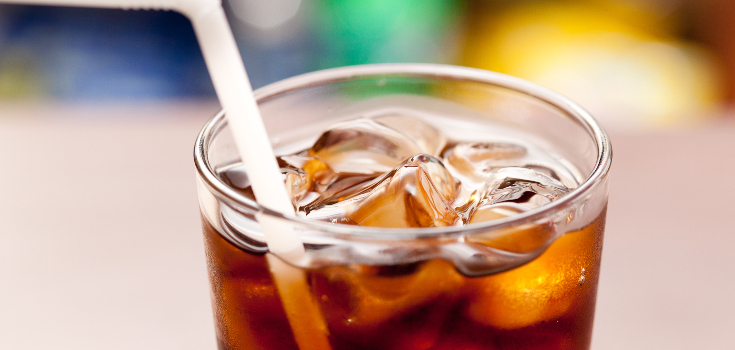Drinking 1 of These Every Day can Significantly Increase Cancer Risk

We know that reducing soda consumption can drastically reduce obesity and diabetes rates, but could such a simple dietary adjustment also reduce cancer rates? According to a Swedish study from Lund University published in the American Journal of Clinical Nutrition, simply drinking one can of soda each day increases a man’s risk of developing prostate cancer by 40 percent compared to a man who never indulges in the sugary beverages.
“When it comes to studies of soda consumption and chronic disease risk, the only superior alternative to a prospective cohort study would be to conduct a randomized, controlled trial, where you assign one group to drink high amounts soda over 20 years, and the other group to not consume soda,” senior researcher Isabel Drake, who led Lund University’s soda cancer study, said.
“This, of course, is unethical and never going to be feasible. There are situations like this one, to assess for causal associations between soda consumption and cancer or other chronic diseases, where observational studies are realistically the best study design to address causal associations.”
Overall, the research found that that fast-releasing carbohydrates and sugary drinks increased the risk of the most aggressive forms of prostate cancer. But for soda specifically, the researchers found that men who drank 300ml of soda each day were more likely to develop the type of prostate cancer which required treatment.
Lead researcher Dr. Isabel Drake commented by saying “among the men who drank a lot of soft drinks or other drinks with added sugar, we saw an increased risk of prostate cancer of around 40 percent.”
Additionally, the researchers found that:
- Men consuming a high amount of carbohydrates from wheat, rice and pasta increased risk of developing mild prostate cancer by 31%, typically requiring no treatment.
- Men consuming sugary breakfast cereals saw a 38% increase in developing milder forms of prostate cancer as well.
Related: What Chemicals are Really in Coca-Cola’s Coke Soda?
Noel Mueller, University of Minnesota School of Public Health Ph.D. student and first author on Pereira’s study, told AlterNet:
“The important take away from our study is that habitual consumption of soft drinks may be linked to an increased risk of pancreatic cancer.”
In response to any criticisms, I’d like to point out that our results align with a recent Columbia University Mailman School of Public Health meta-analysis of studies on this topic, including ours, which found that soft drink consumption was indeed positively associated with pancreatic cancer risk.”
Of course this isn’t the only research outlining the dangers of soda. Research from University of Minnesota School of Public Health found that 87 percent of more than 60,000 test subjects were likely to develop pancreatic cancer, whose median survival for 80 percent of afflicted individuals hovers between six to 10 months. The soda-cancer warning signs continue to siren.
Another study shows how consuming only one soda or sugar-sweetened beverage per day can result in a 20 percent increased risk of coronary heart disease in men.
It’s a good thing the health movement is leading more people to go soda-free, gouging sales for mega-corps which just don’t care about our health.

A person can drink plain carbonated soda water with a squeeze of natural fruit juice.
Weaning oneself off soda can be hard, so the replacement should be somewhat close to the idea of soda so that the person doesn’t feel like they’re missing something (which could lead the person to “fall off the wagon”). The best substitute for soda is water kefir, IMO. It’s fizzy, so that part should help satisfy the desire for fizz, should it be present. Water kefir grains feed on sugars, so even though kefir has a bit of a tangy taste, it can still be on the sweet side–depending on how long you let it culture and which sugar is used. The finished kefir can be flavored so many different ways that it would be difficult to get bored with it; anything from lemon kefir to apple cider kefir, simply by adding fruits or fruit juices to the cultured kefir and allowing it to culture a couple more days. This drink is very healthy because it provides probiotics, which many people are lacking in their lives and which can contribute to disease or gut dysfunction.
A really good source for information about how to make (and flavor) water kefir is Cultures for Health. They also sell kefir grains (water or milk grains), alongside many other cultures for other foods